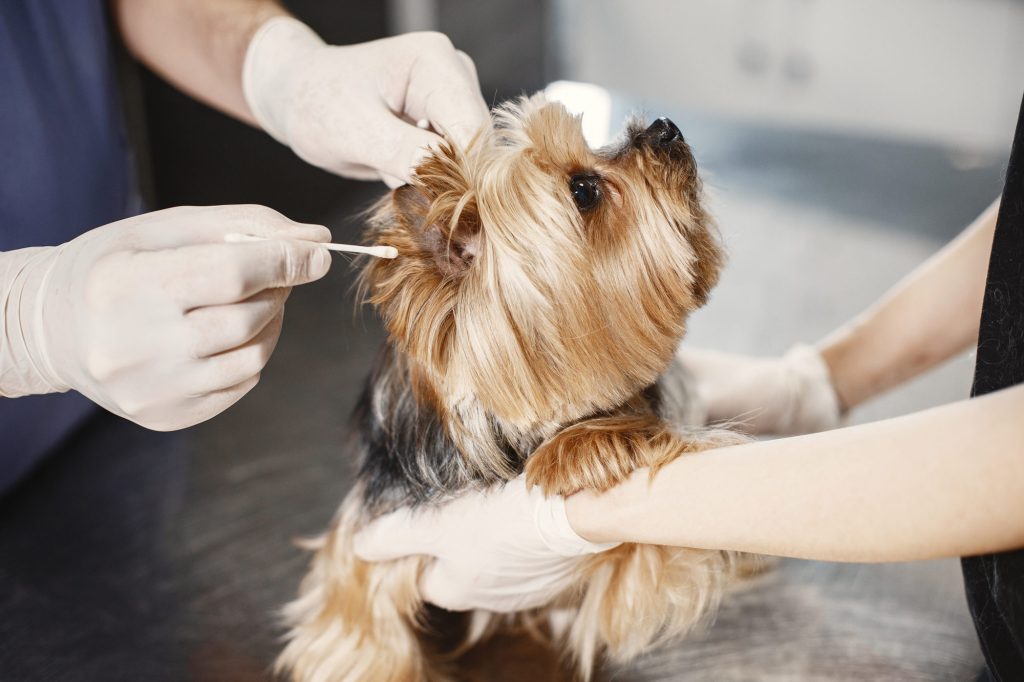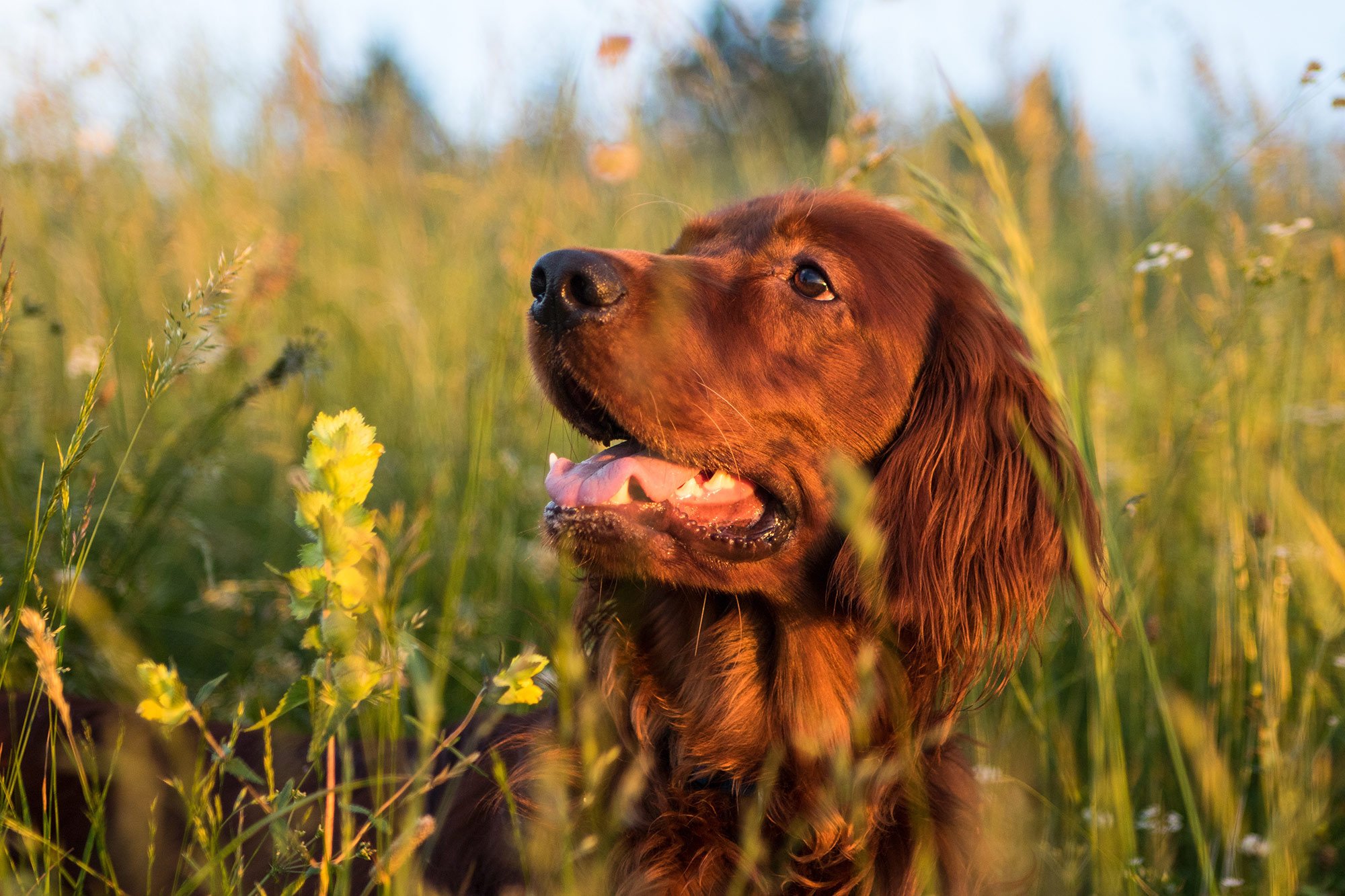Our spirited Beaglier, Archie, brings us endless joy during his daily park runs. However, he showed signs of allergies from a young age—itchy skin, inflamed paws, and irritated ears. Watching our pets suffer with dog allergies was heartbreaking, so we turned to veterinarians and researched for help. Our strategies have improved Archie’s quality of life, and we hope they can do the same for your furry friend.
On this page:
- How to Identify Dog Allergy Symptoms
- How to Minimise Your Dog’s Allergen Exposure
- Boosting Immunity and Improving Skin Care
- When to Visit the Vet: Treatments for Severe Dog Allergies
Springtime in Australia brings vibrant blossoms, but it also ushers in seasonal allergies. Dogs, like humans, can suffer from symptoms ranging from mild itchiness to more severe discomfort. As spring unfolds, pollens from trees, grasses, and weeds are the main culprits, with mold spores and dust mites becoming more problematic as temperatures rise.

How to Identify Dog Allergy Symptoms
While our dogs can’t tell us when they feel under the weather, they show us various signs and behaviours. Recognising these signs early can help you determine whether your dog is struggling with allergies and allow you to take action before symptoms worsen.
- Excessive Scratching or Licking: If your pet is scratching or licking themselves more than usual, they might be trying to soothe the itchiness caused by allergens.
- Red, Inflamed Skin: Visible signs of allergies include red patches, especially in areas like the armpits, groin, or between the toes. Frequent scratching can worsen the irritation.
- Chewing on Paws: Dogs may chew on their paws to relieve itchiness, especially after outdoor walks, signalling an allergic reaction.
- Watery Eyes or Runny Nose: Allergens can cause respiratory or ocular symptoms. Watery eyes or frequent nasal discharge may indicate an allergic reaction.
- Sneezing or Coughing: Your dog may react to airborne allergens by sneezing or coughing occasionally. However, if it has frequent episodes, a vet should check it.
- Ear Infections: Allergies can cause frequent ear infections. Look for head shaking, scratching, or an unusual odour coming from the ears.
By identifying these signs early and addressing them, you can help your dog find relief before complications arise. Always consult your vet for persistent or severe symptoms to ensure your pet receives the best care.

How to Minimise Your Dog’s Allergen Exposure
While it’s impossible to create an allergen-free environment for your dog, there are practical steps you can take to significantly reduce their exposure and lower the risk of allergic reactions. By implementing these preventative measures, you can keep your dog more comfortable and avoid the stress and discomfort that allergies often bring.
Keep Your Home Clean and Allergen-Free for Your Dog
Maintaining cleanliness at home is just as important for our pets as it is for us. Regularly vacuuming carpets, floors, and furniture helps to eliminate allergens like dust, pollen, and pet dander that may accumulate. Make it a habit to wash your dog’s bedding frequently to prevent allergens from building up in their resting areas. For households in high-pollen areas, consider using air purifiers with HEPA filters to keep the indoor environment cleaner and allergen-free.
COWAY Airmega Mighty Air Purifier
The COWAY Airmega Mighty Air Purifier is an excellent solution for reducing indoor allergens, specifically designed to tackle pollen and provide a cleaner, healthier environment for allergy sufferers and their pets.
Reasons to Buy
- 99.9% Pollen Removal.
- Quick and Efficient.
- Traps Microscopic Particles.
- Great Value.

Planning Dog Walks to Minimise Pollen Exposure
While morning walks are a beloved routine, it’s important to know that pollen counts are often highest in the early hours. To reduce your dog’s exposure:
- Try scheduling walks later in the day when pollen levels tend to drop.
- In addition to timing, consider walking your dog in areas with less grass, trees, or plants that produce high pollen levels.
- Opt for beachside paths, urban areas with paved roads, or parks with minimal vegetation.
You can significantly improve your dog’s comfort during allergy season by staying updated with local pollen forecasts and choosing low-pollen environments. Planning can go a long way in keeping your furry friend happy and healthy!
How to Clean Your Dog After Walks to Reduce Allergens
Dogs are naturally curious, and their bodies, especially their paws, legs, and belly, come into contact with numerous allergens during outdoor explorations. After each walk, a quick rinse or wipe-down of these areas helps remove pollen, dirt, and other irritants that can trigger allergies. We recommend using Dog Wipes by Dr Lisa, which are plant-based, vegan-friendly, and 100% compostable—perfect for an eco-friendly cleanup.
Additionally, giving your dog a light brush-down can help remove allergens from their coat before they settle inside your home.
Dog Wipes by Dr Lisa
Dr Lisa Dog Wipes are an eco-friendly, convenient solution to clean your dog after walks, removing allergens like dirt and pollen.
Reasons to Buy
- Plant-based and gentle on sensitive areas like paws and belly
- 100% compostable and environmentally friendly
- Effectively removes dirt, pollen, and irritants
- Convenient and easy to use after walks

Bathing Your Dog to Reduce Allergens
Bathing your dog regularly is crucial for managing allergens, especially during allergy season. Aim to wash your dog every 1-2 weeks, depending on their activity level and sensitivity.
Opt for shampoos specifically designed for sensitive skin, such as Aloveen Oatmeal Shampoo, which is hypoallergenic and soap-free. This type of shampoo soothes irritation while effectively removing dirt, pollen, and other allergens that can accumulate in your dog’s coat, keeping their skin healthy and comfortable.
Aloveen Oatmeal Shampoo
A gentle, hypoallergenic shampoo designed to soothe and moisturise your dog's sensitive skin while effectively removing allergens like dirt and pollen.
Reasons to Buy
- Hypoallergenic and soap-free, ideal for sensitive skin
- Contains natural oatmeal to soothe irritation
- Moisturises and conditions the skin and coat
- Effectively removes dirt, pollen, and allerge
- Gentle enough for regular use

Boosting Immunity and Improving Skin Care
A robust immune system is a dog’s first line of defence against allergies, and diet plays a crucial role in supporting it. Since every dog is unique, dietary changes should be introduced gradually under the guidance of a veterinarian or pet nutritionist. Monitoring your dog for any discomfort after changes is essential to ensure the new regimen is effective. Here are some ways to boost your dog’s immunity through diet.
Boosting Omega-3s
Omega-3 fatty acids, particularly those found in fish oils, have natural anti-inflammatory properties. Incorporating them into your dog’s diet helps reduce allergic reactions and soothe inflamed skin. We add NAS Omega Oil 3, 6, and 9 to Archie’s dog food daily to help improve skin and joint care.
NAS Omega Oil 3, 6 & 9
A high-quality supplement designed to improve your dog's skin, coat, and joint health while reducing inflammation and allergic reactions.
Reasons to Buy
- Rich in Omega-3, 6, and 9 fatty acids for comprehensive skin and coat care
- Helps reduce inflammation and soothe allergy-related itching
- High-quality and natural ingredients designed for optimal absorption
- Also supports joint health and mobility

Probiotics and Digestive Enzymes
A healthy gut supports a strong immune system. Probiotics introduce beneficial bacteria, while digestive enzymes aid in nutrient absorption. Both can strengthen your dog’s immune response, making them less prone to allergies.
Natural Antioxidants
Foods rich in antioxidants, such as blueberries, spinach, and sweet potatoes, help combat free radicals that exacerbate allergic reactions. Adding these nutrient-rich foods to your dog’s diet can boost their immunity.
High-Quality Protein
Providing your dog with high-quality, easily digestible protein is essential. It supports their overall health while reducing the chances of allergic reactions stemming from inferior protein sources.

When to Visit the Vet: Treatments for Severe Dog Allergies
If your dog is suffering from persistent or severe allergy symptoms—such as excessive scratching, inflamed skin, or recurring ear infections—it’s essential to consult a veterinarian. Although they may mention many of the above recommendations, A vet can provide expert advice and medical treatments for immediate relief and help prevent the issue from worsening. Here are some standard vet-recommended solutions:
Medical Shampoos: Hypoallergenic or medicated shampoos prescribed by vets can help soothe inflamed skin and remove allergens more effectively than standard shampoos.
Antihistamines: Vets may prescribe antihistamines to quickly alleviate itching and discomfort caused by allergic reactions.
Steroids: Steroids reduce inflammation and provide fast relief for more severe allergic reactions. Due to potential side effects, they should only be used in severe cases and under veterinary supervision.

In Conclusion: Prioritizing Our Furry Companions’ Well-being
Allergies, while a common challenge many dogs face, can be managed with the right approach, knowledge, and care. Our journey with Archie taught us the significance of timely intervention and the profound impact of both preventive measures and targeted treatments. With Australia’s ever-changing landscape and the plethora of allergens that springtime introduces, being equipped with this knowledge is vital.

From identifying initial symptoms to dietary enhancements that fortify immunity, each step we take is in pursuit of ensuring our pets lead comfortable and joyful lives. While every dog’s needs are unique, the universal truth remains: their well-being is paramount. By staying informed, proactive, and in close consultation with veterinary professionals, we can ensure our dogs navigate allergy seasons with ease and continue to revel in the joys of life. After all, the happiness and health of our furry friends enrich our lives in countless ways.







